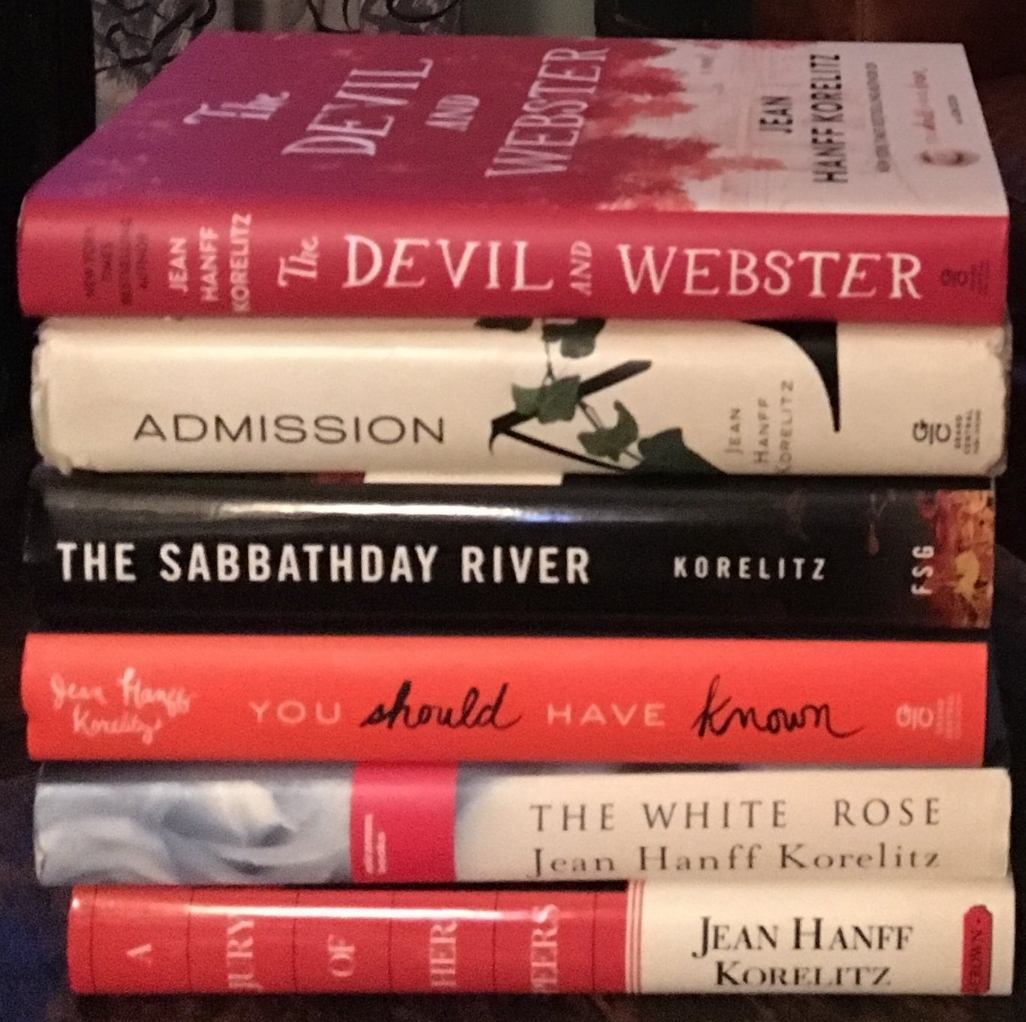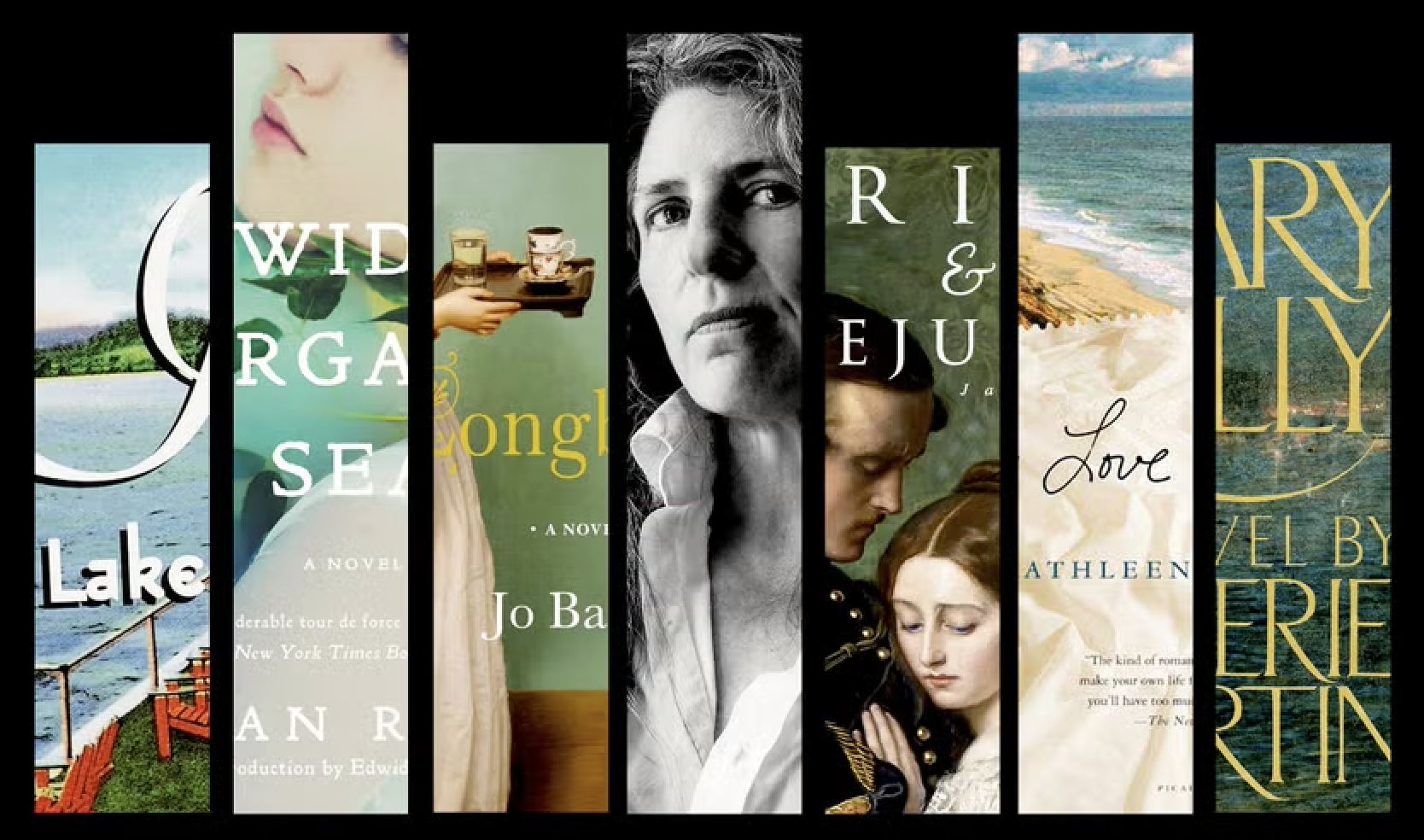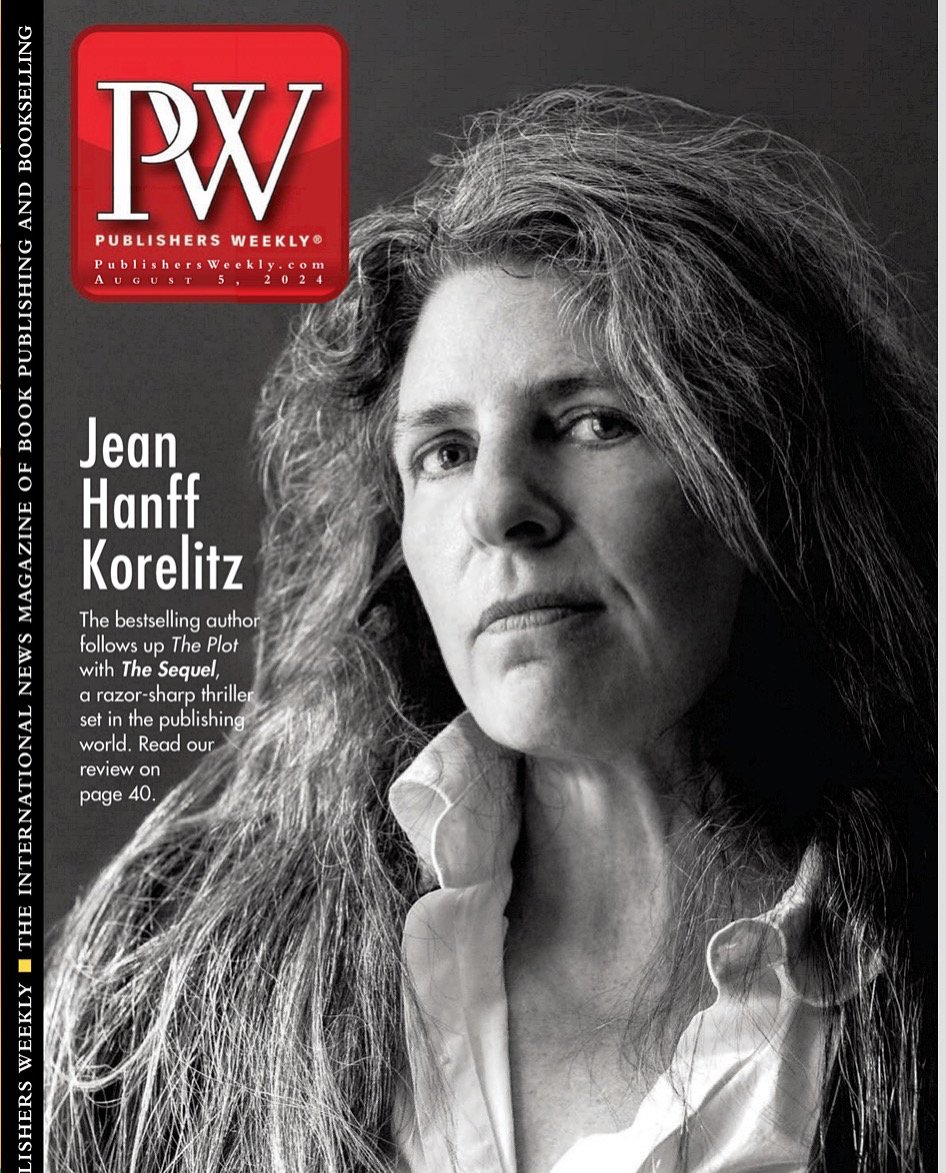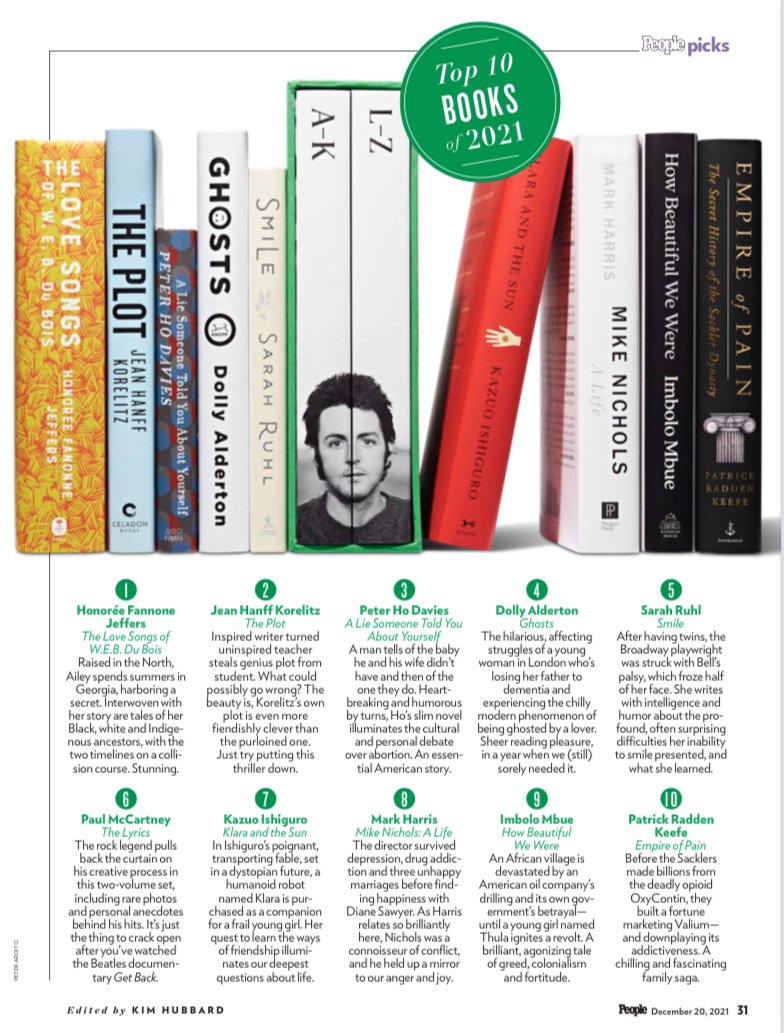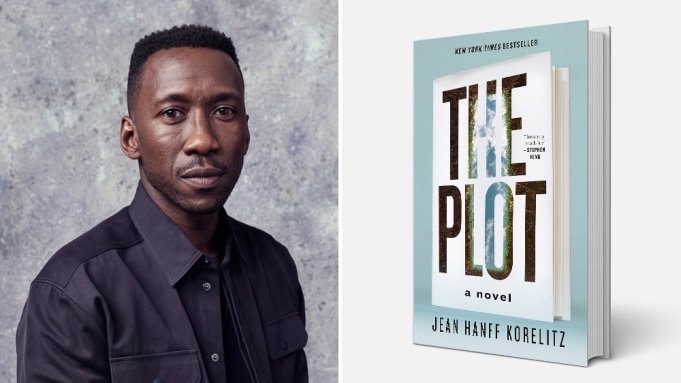“
”THE PLAGIARISM PLOT IS HAVING A MOMENT. COPY THAT.”
...Take Jean Hanff Korelitz’s runaway 2021 best seller “The Plot” (destined to become a series on Hulu). The title and cover image (a mise en abyme illustration of a book titled “The Plot”) clue us in to what awaits inside: a book not just about a book but about something more fundamental — the essence of plot itself. Korelitz cleverly wraps her metafiction in a page-turner: the story of Jake, a writer once successful, now blocked, who makes good when Evan, a former student, dies and Jake helps himself to Evan’s plot (though not his prose), only to be harassed by a mysterious source threatening to expose him as a thief.
At the same time, Korelitz constantly foregrounds the idea of fiction’s intrinsic indebtedness. “Was there even such a thing as ‘a plot like mine’?” Jake reflects early on, after meeting with Evan, who utters this phrase, boasting that his work in progress is “a sure thing” — one that, owing entirely to the novelty of its plot, will make its author rich, become an Oprah pick and wind up a Hollywood blockbuster.
Jake knows better. After all, “greater minds” than his “had identified the few essential plots along which pretty much every story unfurled itself.” Yet when Evan confides his novel’s plot, Jake, rendered speechless, is forced to revise his opinion: “He had no thought of anything but this story, which was none of the great plots — Rags to Riches, Quest, Voyage and Return, Rebirth. … It was something new to him, as it would be new to every single person who read it, and that was going to be a lot of people.”
This is the irony at the heart of “The Plot”: What is greeted by Jake, and eventually by his dazzled reading public, as shockingly new is inexorably shown to have been (depending on your view) reimagined or stolen, not just by Jake but, under different circumstances (read the book to grasp this twist), by Evan, too. Korelitz has ingenious fun with what by her conclusion begins to feel like an infinite regress of appropriations and remakings: Jake’s own novel is called, pointedly, “Crib”; a central character is revealed to have borrowed a back story for herself from the plot of Marilynne Robinson’s novel “Housekeeping”; and the literary allusions — from Percy Bysshe Shelley and T.S. Eliot to Patricia Highsmith — giddily pile up.
Ultimately, Korelitz’s point is more philosophical than moral: However hard we try to police the boundaries of storytelling, by instilling codes of ethics and enforcing copyright law, stories, by their very nature, want to be free — free to circulate through us and among us, undergoing revision and transformation in an endlessly generative and unstoppable process.
As if to prove her thesis, Korelitz has given “The Plot” a sequel. Published in October and titled (what else?) “The Sequel,” it, too, features a mise en abyme cover, only here the illustration shows the new book perched atop a prone copy of its predecessor, as though supplanting it — which “The Sequel,” or at least its protagonist, tries to do. This time, the efforts to patrol storytelling take a decidedly grisly turn. But though the body count climbs, a reader is unlikely to come away convinced that the trail of muzzled voices means that order has been restored, or to share the killer’s view that control over the tale at these novels’ center has been returned to its rightful owner. Korelitz has taught her lesson well: Censoring a storyteller is unlikely to stop the dissemination of the story — it’s already out there...”
Delightful Year End Recognition for “THE SEQUEL”!
100 Notable Books of 2024 — THE NEW YORK TIMES
10 Best Thrillers of 2024 — THE NEW YORK TIMES
Best Mystery Novels of the Year — THE WALL STREET JOURNAL
The Best Books of 2024 — THE NEW YORKER
50 Notable Books of Fiction 2024 - WASHINGTON POST
Top 10 Books of 2024 — AARP
Best Books of 2024 - ESQUIRE
Best of the Year - AUDIBLE
Best of 2024 - PUBLISHERS WEEKLY
By the Book
October 1, 2024: A fantastic publication day for THE SEQUEL began with a great New York Times review (“Sequels are notoriously tricky. Even the characters in “The Sequel” acknowledge it. ‘They’re never as good as the first book, are they?’ Well, this one is.”), moved on to a lovely Washington Post review by Maureen Corrigan (“readers of ‘The Sequel’ will find themselves rooting for the witty, ruthless Anna to win out over the predators, poseurs and ordinary mean folk who populate her mostly fallen universe. Like Patricia Highsmith’s Tom Ripley (inspiration for Ripley College) or Satan in Milton’s ‘Paradise Lost,’ Anna is a heinous devil who may shock and offend, but never bores.”), a Bibliophiles piece in the Boston Globe, a Best Books of October nod in People (“satirical, bookish suspense”) and finally the news that the novel had been selected as a Best Books of October. I also signed books around town and got to record an interview for the New York Times Book Review podcast with Gilbert Cruz, which meant that I entered the New York Times building for the first time in my life. (Native New Yorker here!) What a day!
New York Times Book Review Podcast
In 2021, the novelist Jean Hanff Korelitz had a hit with “The Plot,” a book that was partly a mystery, partly a thriller and entirely a delicious sendup of the publishing industry. It told the tale of a once-promising writer, Jacob, who steals somebody else’s story idea and reaches undreamed-of levels of success before things go very badly for him. Korelitz’s new novel, “The Sequel,” is — yes — a sequel to “The Plot.” It follows Jacob’s widow, Anna, who has unexpectedly become a writer herself, only to be confronted with her own dark secrets. On this week’s episode, Korelitz talks with the host Gilbert Cruz about the writing life, the shape of her career and her decision to write a sequel to “The Plot.”
After the “insanely readable” (Stephen King) and “perfectly told” (Malcolm Gladwell)New York Times bestseller The Plot comes Jean Hanff Korelitz’s equally captivating new novel: The Sequel.
Anna Williams-Bonner has taken care of business. That is to say, she’s taken care of her husband, bestselling novelist Jacob Finch Bonner, and laid to rest those anonymous accusations of plagiarism that so tormented him. Now she is living the contented life of a literary widow, enjoying her husband’s royalty checks in perpetuity, but for the second time in her life, a work of fiction intercedes, and this time it’s her own debut novel, The Afterword. After all, how hard can it really be to write a universally lauded bestseller?
But when Anna publishes her book and indulges in her own literary acclaim, she begins to receive excerpts of a novel she never expected to see again, a novel that should no longer exist. That it does means something has gone very wrong, and someone out there knows far too much: about her late brother, her late husband, and just possibly... Anna, herself. What does this person want and what are they prepared to do? She has come too far, and worked too hard, to lose what she values most: the sole and uncontested right to her own story. And she is, by any standard, a master storyteller.
With her signature wit and sardonic humor, Jean Hanff Korelitz gives readers an antihero to root for while illuminating and satirizing the world of publishing in this deliciously fun and suspenseful read.
This happened.
THE PLOT was the Fallon Summer Reads winner in 2021
Exciting year end lists for 2022!
THE LATECOMER has been included in The New York Times’ 100 Books of the Year, CBS Sunday Morning/Favorite Novels of 2022, The New Yorker Magazine’s The Best Books of 2022, Washington Post’s 50 Best Fiction Books of 2022, and NPR’s Staff Picks/Best of 2022.
Nice to share this wonderful honor with my husband, who collaborated with Paul McCartney on the magnificent THE LYRICS. Thank you to People Magazine!
A television adaptation of THE LATECOMER will be developed by producers Kristen Campo (Campout Productions) and Bruna Papandrea (Made Up Stories). Read the announcement here.
A once in a lifetime photo taken by my daughter in front of Penn Station, after THE PLOT was named Amazon’s Number 3 book of the year!
Some news about the television adaptation of THE PLOT:
Multiple outlets are bidding on a buzzy limited series adaptation of the best-selling novel “The Plot” with Mahershala Ali attached to star for Endeavor Content.
Ali is a two-time Oscar winner, for 2017’s “Moonlight” and 2019’s “Green Book.” For TV, he starred in the third season of HBO’s “True Detective” in 2019 and was a regular on Netflix’s “Luke Cage” and “House of Cards.” He was featured in the 2020 HBO documentary special “Between the World and Me,” and he was a semi-regular last year on the Hulu comedy “Ramy.”
Thanks to THE GUARDIAN (UK) and Lisa Allardice for this great profile!
THE PLOT has been named to a number of great lists! Including:
Amazon Books Editors Pick the Best Books of 2021: THE PLOT is #3
Washington Post: Best Thriller and Mystery Books of 2021
New York Times Book Review: 100 Notable Books of 2021
Washington Post: Best Mysteries and Thrillers of 2021
Time: New Thriller Books Find Drama in the Publishing World
An Amazon Best of the Month Pick for May
New York Times 15 New Books to Watch for in May
Entertainment Weekly’s 20 Best New Books to read in May
Oprah Magazine’s 55 of the Most Anticipated Books of 2021
Newsweek’s 21 Enticing Books to Take Along This Summer
The Washington Post’s 20 Books to Read This Summer
Parade’s Best 25 Books of Summer: 25 Books to Add to Your Summer Reading List
The Daily Beast’s Best Summer Reads of 2021
The New York Post’s 30 Best Books on our Summer Reading List in 2021
Lithub’s Most Anticipated Books of 2021
Crimeread’s Most Anticipated Crime Books of 2021
Reader’s Digest’s 50 Best Fiction Books to Read 2021
Bustle’s Most Anticipated Books of Spring 2021
Amazon Editors’ Picks: Must-Read Mysteries and Thrillers of Spring
I spoke to Sarah Silverman on her podcast, about THE UNDOING, adaptation, and the genius of Tevye.
“Meet the Makers” with Irish Repertory Theatre. Discussing THE DEAD, 1904 with Paul Muldoon, Ciaran O’Reilly, Nina Korelitz Matza and Liz Neumark
10/24/19 It was such a thrill to interview Erica Jong for the Sharon Springs Poetry Festival last weekend. Here’s a write up from AllOtsego.com
10/22/19
As someone who’s written at some length about college admissions, I’ve followed the unfolding #VarsityBlues scandal with great interest, and I have some thoughts.
First, anyone who wants to truly understand the current admissions landscape should read Jerome Karabel’s THE CHOSEN: THE HIDDEN HISTORY OF ADMISSION AND EXCLUSION AT HARVARD, YALE, AND PRINCETON, as I did when I was writing ADMISSION. Looking at the current configuration without being able to place it in a historical context is not useful.
Second, colleges should discontinue designated admits and recruiting for sports that are generally not offered in public schools: Equestrian, sailing, golf, skiing, lacrosse, etc. (Though these sports can certainly still be played, even at the college level.)
Third, legacy applicants (and their parents) are not the villains of this story. Alumni loyalty flows in both directions, as it should, and children of graduates are often spectacular applicants, HOWEVER, advantaged admission for legacy applicants should be capped at a set quota, with only the most competitive within that pool admitted. Those not so admitted should join the regular applicant pool with no earmark for legacy status.
Finally, for a holistic reset of the entire process, students should not apply to college until they have been out of high school for one year, and should not begin college until two years after graduation. This puts the application process into the students’ hands and allows for more mature and focused applicants who are really ready to go to college and study (as opposed to party). It also makes parents less central, less involved, and hopefully less competitive.
“Fair” is a malleable concept, in this as in most settings. People who bemoan the “brokenness” of college admissions must understand that the system, implemented by well meaning, usually very idealistic, human beings in a constantly shifting social and cultural landscape, are doing their best to fulfill their responsibilities to the institutions they serve. The vast majority of applicants are hugely qualified, and no matter how decisions are made, deserving and capable young people of every conceivable ethnicity and background will still be rejected. No adjustments to the process will ever change that fact.
Those are my thoughts.
